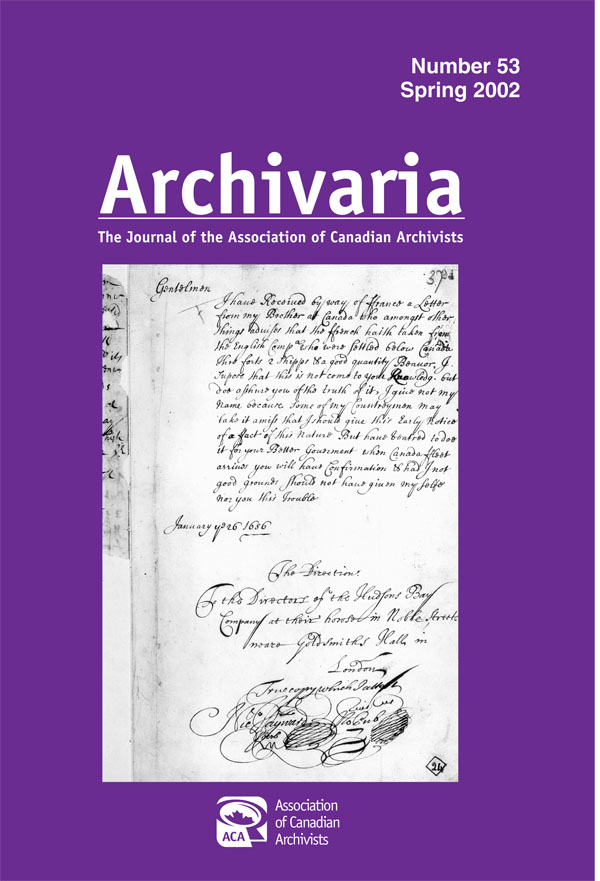The Importance of Oral and Extrinsic Historical Evidence in Understanding Indian Treaties
Abstract
In recent years, the Courts have instructed Canadians about the importance of oral testimony and other extrinsic historical evidence in providing context and insight into the meaning and interpretation of Indian treaties. The author reviews three books that explore how this genre of historical information assists both Native peoples and non-Natives in gaining a better understanding of Treaty No. 7 in southern Alberta, as well as the importance of the six numbered Indian treaties in Saskatchewan. This article also examines the courtroom role of historians and the creative use of extrinsic documentation in the Supreme Court of Canada trial of Donald Marshall Jr. in which senior justices breathed new life and substance into the Maritime Peace and Friendship Treaties. The author advises archivists and historians of an increased burden on their activities, as oral testimony and other types of extrinsic evidence will be used increasingly by adjudicative bodies to provide a modern interpretation to provisions of Indian treaties. This judicial activism has had, and will continue to have, a significant impact on the Canadian polity.
Authors of manuscripts accepted for publication retain copyright in their work. They are required to sign the Agreement on Authors' Rights and Responsibilities that permits Archivaria to publish and disseminate the work in print and electronically. In the same agreement, authors are required to confirm that "the material submitted for publication in Archivaria, both in its paper and electronic versions, including reproductions of other works (e.g. photographs, maps, etc.) does not infringe upon any existing copyright." Authors of manuscripts accepted for publication retain copyright in their work and are able to publish their articles in institutional repositories or elsewhere as long as the piece is posted after its original appearance on archivaria.ca. Any reproduction within one year following the date of this agreement requires the permission of the General Editor.





